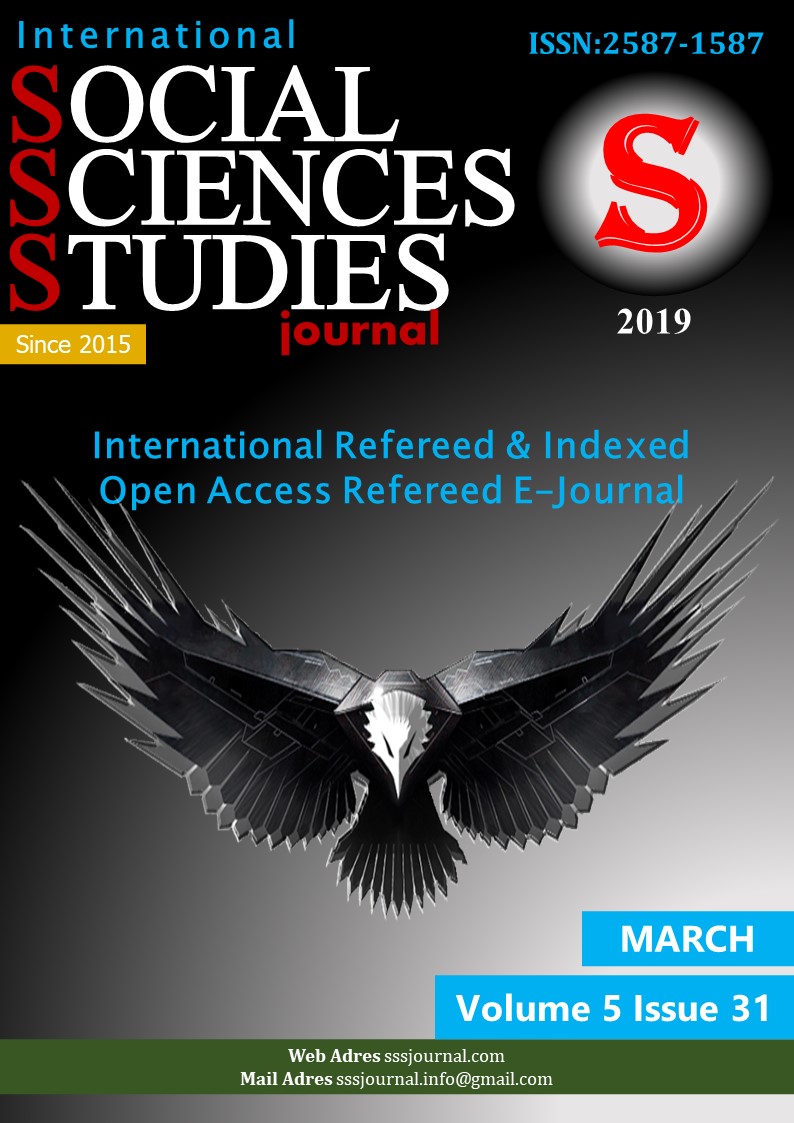Author :
Abstract
Günümüz iş dünyasında yaşanan değişimler birçok fırsat ve tehdidi beraberinde getirmektedir. İşletme faaliyetlerinin sürdürülebilirliği, bu fırsat ve tehditlerin etkin şekilde değerlendirmesiyle yakından ilgilidir. Dolayısıyla, yöneticilerin iş başarısında teknolojik, politik, ekonomik ve sosyal boyutları içeren değişimleri öngörme ve stratejik yaklaşımlarla geleceği şekillendirme yetenekleri kritik bir rol oynamaktadır. Bu nedenle, yöneticiler enerji, zaman ve kaynakları dengeli bir şekilde kullanmak için karar verme süreçlerinde bugün, geçmiş ve gelecekten oluşan stratejik bir yapı çerçevesinde hareket etmelidir. Planlı fırsatçılık olarak adlandırılan yönetim yaklaşımı sayesinde yöneticiler zayıf sinyalleri takip ederek değişen çevre şartlarına cevap verebilir ve yeni pazar alanlarına girmeye çalışabilir. Proaktif bir yaklaşımla gelecekle ilgili olası değişimleri öngörme ve sistematik olarak yeni fırsatlar belirleme süreci olan planlı fırsatçılık, yöneticilerin geleceği kontrol altına alması için bir yol haritası çizer. Literatürde planlı fırsatçılık konusunda yapılan çalışma sayısı yok denecek kadar azdır. Keşfedici bir araştırma niteliğinde olan bu çalışmanın amacı, stratejik yönetim yaklaşımlardan biri olan planlı fırsatçılığa ilişkin kavramsal bir çerçeve sunmaktır. Elde edilen bulgular, planlı fırsatçılığın yenilikçi bir bakış açısıyla gelecek senaryoları planlayarak işletmelerin geleceğini şekillendirmede uygun bir yaklaşım olacağını göstermektedir. Ayrıca, bu yaklaşımın uygulanması için uzun dönemli vizyoner bir bakış açısı, değişim sinyallerine açık olma, rasyonel bir karar verme mekanizması, etkin liderlik, esnek ve uyumlu bir örgüt yapısı gibi faktörlerin gerekli olduğu ortaya konulmuştur. Araştırma sonuçlarının stratejik yönetim ve planlama alanında araştırma yapanlara ve uygulayıcılara fayda sağlaması beklenmektedir.
Keywords
Abstract
Changes in today’s business world bring many opportunities and threats. The sustainability of business activities is closely related to the effective evaluation of these opportunities and threats. Therefore, managers’ ability of predict changes including technological, political, economic and social dimensions and shape the future with strategic approaches plays a critical role in their business success. For this reason, managers should act in the framework of a strategic structure consisted of past, present and future in their decision-making processes in order to utilize energy, time and resources in a balanced manner. With the management approach called as planned opportunism, managers can respond to changing environmental conditions by following weak signals and can try to penetrate into new market areas. Planned opportunism, which is a proactive approach to predict possible changes in the future and to set new opportunities systematically, draws a roadmap for managers to control the future. The studies on planned opportunism are rare in the literature. The aim of this exploratory research is to provide a conceptual framework for planned opportunism, which is one of the strategic management approaches. The findings show that planned opportunism will be an appropriate approach in shaping the future of enterprises by planning future scenarios with an innovative perspective. In addition, a long-term visionary perspective, the openness to change signals, a rational decision-making mechanism, an effective leadership, and a flexible and harmonious organizational structure are necessary for the implementation of this approach. The results of the research are expected to provide benefits to researchers and practitioners in the field of strategic management and planning.
Keywords
- Annunziata, M., Biller, S. (2015). “The Industrial Internet and the Future of Work”. Mechanical
- Annunziata, M., Biller, S. (2015). “The Industrial Internet and the Future of Work”. Mechanical Engineering, 137 (9), 30-35, doi: 10.1115/1.2015-Sep-1
- Blatstein, I. M. (2012). “Strategic Planning: Predicting or Shaping the Future?” OrganizationDevelopment Journal, 30 (2), 31-38, Erişim adresi:http://0210x04df.y.http.content.ebscohost.com.bartin.proxy.deepknowledge.io/ContentServer.aspCan, M. (2014). Karar Teorisi. İşletmeciler, Mühendisler ve Yöneticiler için Operasyonel,Yönetsel ve Stratejik Problemlerin Çözümü Çok Kriterli Karar Verme Yöntemleri. B. F. Yıldırım ve E. Önder (Eds.), Bursa: Dora Yayıncılık.
- Eren, E. (2013). Yönetim ve Organizayon (Çadaş ve Küresel Yaklaşımlar). Beta Yayıncılık: İstanbul.
- Govindarajan, V. (2012). “Life is Planned Opportunism. Life Science Leader”, Erişim adresi: https://www.lifescienceleader.com/doc/life-is-planned-opportunism-000.1
- Govindarajan, V. (2016a). The Three Box Solution: A Strategy for Leading Innovation. Boston, MA, USA: Harvard Business Review Press.
- Govindarajan, V. (2016b). “Planned Opportunism”. Harvard Business Review, May 2016, 54-61,Erişim adresi:http://glassyad.ir/magazine/economics_marketing/2016/May/Harvard_Business_Review_USA_- _May_2016.pdf.
- Güney, S. (2007). Liderlik. Yönetim ve Organizayon. S. Güney (Ed.), Nobel Yayın Dağıtım: Ankara.
- Kanji, G. P. (2005). “Sustainable Growth and Business Excellence”. Total Quality Management, 16 (8-9), 1069-1078, doi: 10.1080=14783360500163292.
- Karasar, Niyazi (2016). Bilimsel Araştırma Yöntemi: Kavramlar, İlkeler, Teknikler. Ankara: Nobel Yayıncılık.
- Kılıç, M. (2010). “Stratejik yönetim sürecinde değerler, vizyon ve misyon kavramları arasındakiilişki”. Sosyoekonomi, 13 (13), 81-98, Erişim adresi: http://dergipark.gov.tr/download/article- file/197679.
- Leavy, B. (2016). “Two approaches for sustaining growth: re-introducing the “founder’smentality” and implementing “The Three Box” solution”. Strategy & Leadership, 44 (5), 36-46, doi: 10.1108/SL-06-2016-0049.
- Manerikar, V., Manerikar, S. (2014). “A Note on Exploratory Research”. aWEshkar, Vol. XVII, Issue 1; 95-96.
- Omarli, S. (2017). Which Factors have an Impact on Managerial Decision-Making Process? AnIntegrated Framework. Essays in Economics and Business Studies, Janos Tibor Karlovitz (Ed.). Slovakia: International Research Institute S.R.O.
- Parker, D. (2016). “Putting planned opportunism into practice”. Erişim adresi: https://www.intheblack.com/articles/2016/10/01/putting-planned-opportunism-into-practice
- Pettigrew, A. M. (1990). “Longitudinal Field Research on Change: Theory and Practice”. Organization Science, 1 (3), 267-292.
- Saylı, H., Tüfekçi, A. (2008). “Başarılı Bir Örgütsel Değişimin GerçekleştirilmesindeDönüştürücü Liderliğin Rolü”. Erciyes Üniversitesi İktisadi ve İdari Bilimler Fakültesi Dergisi, 30, 193-210, Erişim adresi: http://dergipark.gov.tr/download/article-file/66504.
- Tekin, Y., Ehtiyar, R. (2011).” Başarının Temel Aktörleri: Vizyoner Liderler”. Journal of YasarUniversity, 24 (6), 4007-4023, Erişim adresi: https://journal.yasar.edu.tr/wp- content/uploads/2012/10/6.yasemin_tekin.pdf.
- Winslet, G. (2014). “Resisting innovation talk in higher education teaching and learning”.Discourse: Studies in the Cultural Politics of Education, 35 (2), 163-176, doi: 10.1080/01596306.2012.745728.
